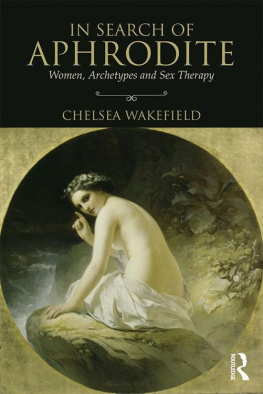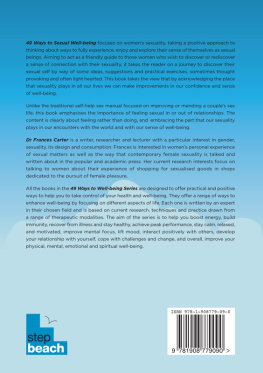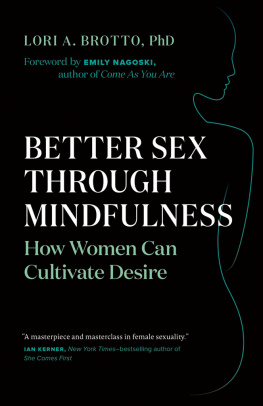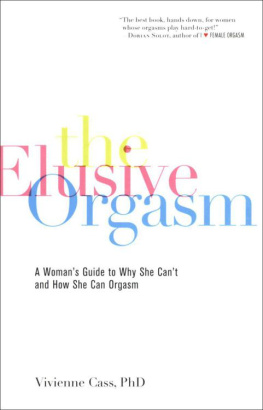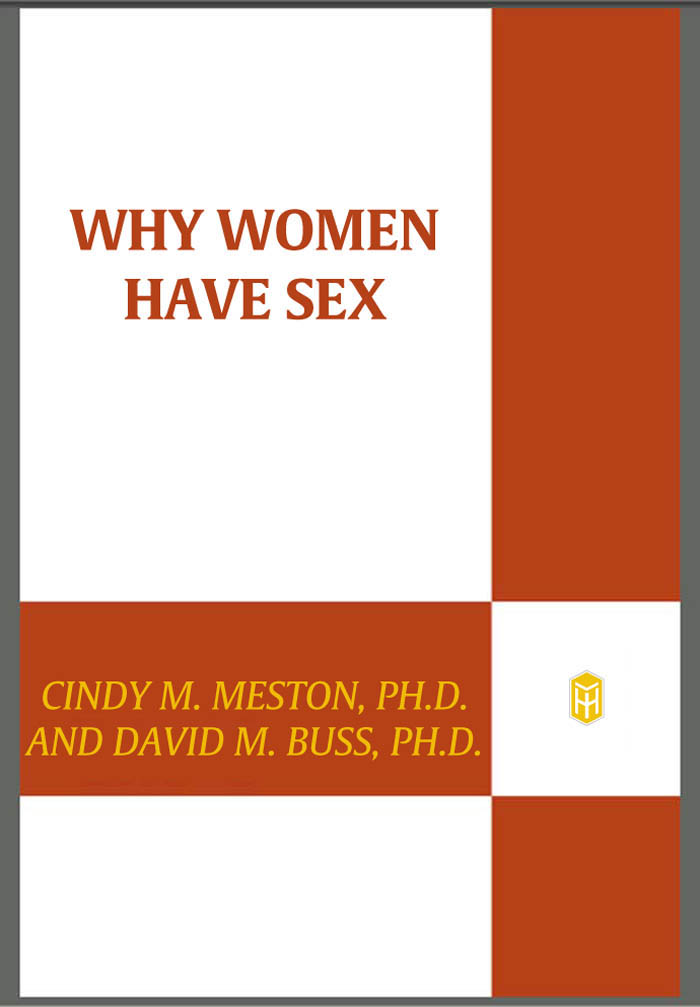Also by Cindy M. Meston

Womens Sexual Function and Dysfunction
(Ed., with Irwin Goldstein, Susan R. Davis, and Abdulmaged M. Traish)
Also by David M. Buss

Evolutionary Psychology:
The New Science of the Mind
Personality Psychology:
Domains of Knowledge About Human Nature
(with Randy Larsen)
The Murderer Next Door:
Why the Mind Is Designed to Kill
Handbook of Evolutionary Psychology (Ed.)
The Evolution of Desire:
Strategies of Human Mating
The Dangerous Passion:
Why Jealousy Is as Necessary as Love and Sex
Sex, Power, Conflict:
Evolutionary and Feminist Perspectives
(Ed., with Neil Malamuth)
Why Women Have Sex
Why Women Have Sex
_____________________________________________________
Understanding Sexual Motivations
from Adventure to Revenge
(and Everything in Between)

CINDY M. MESTON, PH.D.
AND DAVID M. BUSS, PH.D.
TIMES BOOKS
Henry Holt and Company New York

Times Books
Henry Holt and Company, LLC
Publishers since 1866
175 Fifth Avenue
New York, New York 10010
www.henryholt.com
Henry Holt is a registered trademark
of Henry Holt and Company, LLC.
Copyright 2009 by Cindy M. Meston and David M. Buss
All rights reserved.
Lyric from Wake Up Little Susie copyright 1957 by House of
Bryant Publications. Used by permission. All rights reserved.
Lyric from Tonights the Night (Gonna Be Alright)
copyright 1976 by EMI April Music Inc. Used by permission of EMI
Music Publishing. All rights reserved.
Distributed in Canada by H. B. Fenn and Company Ltd.
Library of Congress Cataloging-in-Publication Data
Meston, Cindy M. Why women have sex : understanding sexual motivationsfrom adventure to revenge (and everything in between) / Cindy M. Meston and David M. Buss. p. cm. ISBN-13: 978-0-8050-8834-2 1. WomenSexual behavior. 2. WomenPsychology. 3. Sex (Psychology) I. Buss, David M. II. Title. HQ29.M472 2009 |
Henry Holt books are available for special promotions
and premiums. For details contact: Director, Special Markets.
First Edition 2009
Designed by Victoria Hartman
Printed in the United States of America
1 3 5 7 9 10 8 6 4 2
To all of the women in our study
who bravely shared
their sexual experiences with us

CONTENTS

What Turns Women On?
Scent, Body, Face, Voice, Movement, Personality, andYesHumor |
The Pleasure of It
Sexual Gratification and Orgasm |
The Thing Called Love
An Emotional and Spiritual Connection |
The Thrill of Conquest
From Capturing a Mate to Poaching One |
Green-Eyed Desire
From Guarding a Mate to Trading Up |
A Sense of Duty
When Responsibility or Guilt Calls |
A Sense of Adventure
When Curiosity, Varietyand Mate EvaluationBeckon |
Barter and Trade
The Value of SexLiterally and Figuratively |
The Ego Boost
Body Image, Attention, Power, and Submission |
The Dark Side
Sexual Deception, Punishment, and Abuse |
Sexual Medicine
The Health Rewards of a Sex Life |
INTRODUCTION
Inside the Sexual Mind

W hy women have sex is an extraordinarily important but surprisingly little-studied topic. One reason for its neglect is that scientists and everyone else have assumed that the answers are already obviousto experience pleasure, to express love, orat the very heart of the biological drive to have sexto reproduce. So, more than five years ago, we decided to undertake an intensive research project, involving more than three thousand individuals, to uncover the mysteries of womens sexuality.
When our scientific article Why Humans Have Sex was published in the August 2007 issue of Archives of Sexual Behavior, it generated an avalanche of interest. What that media coverage revealed, however, was just the tip of the iceberg. In that original study, we identified 237 distinct sexual motivations that covered an astonishing variety of psychological nuance. These motives ranged from the mundane (I was bored) to the spiritual (I wanted to get closer to God), from altruistic (I wanted my man to feel good about himself) to vengeful (I wanted to punish my husband for cheating on me). Some women have sex to feel powerful, others to debase themselves. Some want to impress their friends; others want to harm their enemies (I wanted to break up a rivals relationship by having sex with her boyfriend). Some express romantic love (I wanted to become one with another person); others express disturbing hate (I wanted to give someone else a sexually transmitted disease). But none of these reasons conveyed the why that hid behind each motive.
Through statistical procedures, we clustered the motivations into natural groupings. We then set out to explore womens sex lives in richer detail in a new study designed specifically for this book. And we integrated our research with all the latest scientific findingsfrom our labs and from the labs of other scientists throughout the worldto present what we believe is one of the richest and deepest understandings of womens sexuality yet achieved.
Why Women Have Sex brings these insights to life with detailed descriptions of womens actual sexual encounters; the motives that impel women to have sex; and the theory behind why each of those motives exists in womens sexual psychology. Although human sexuality has been the primary focus of our scientific research for many years, this project proved to be more illuminating about womens sexuality than we ever expected.
How did we end up collaborating on this extraordinary project? As it happens, we have offices right next door to each other in the psychology department at the University of Texas at Austin, where we are both professors. Given our shared professional interests, weve had many conversations about human sexuality. The topic of conversation turned one day to sexual motivation, and we started discussing a simple question: Why do people have sex?
As coauthors, we combine uniquely complementary domains of expertise. One of us, Cindy M. Meston, is a clinical psychologist and one of the worlds leading experts on the psychophysiology of womens sexuality. The other, David M. Buss, is an evolutionary psychologist and one of the worlds scientific experts on strategies of human mating. Our collaboration allowed us to develop a deeper understanding of womens sexuality than either of us could have achieved working alone.



